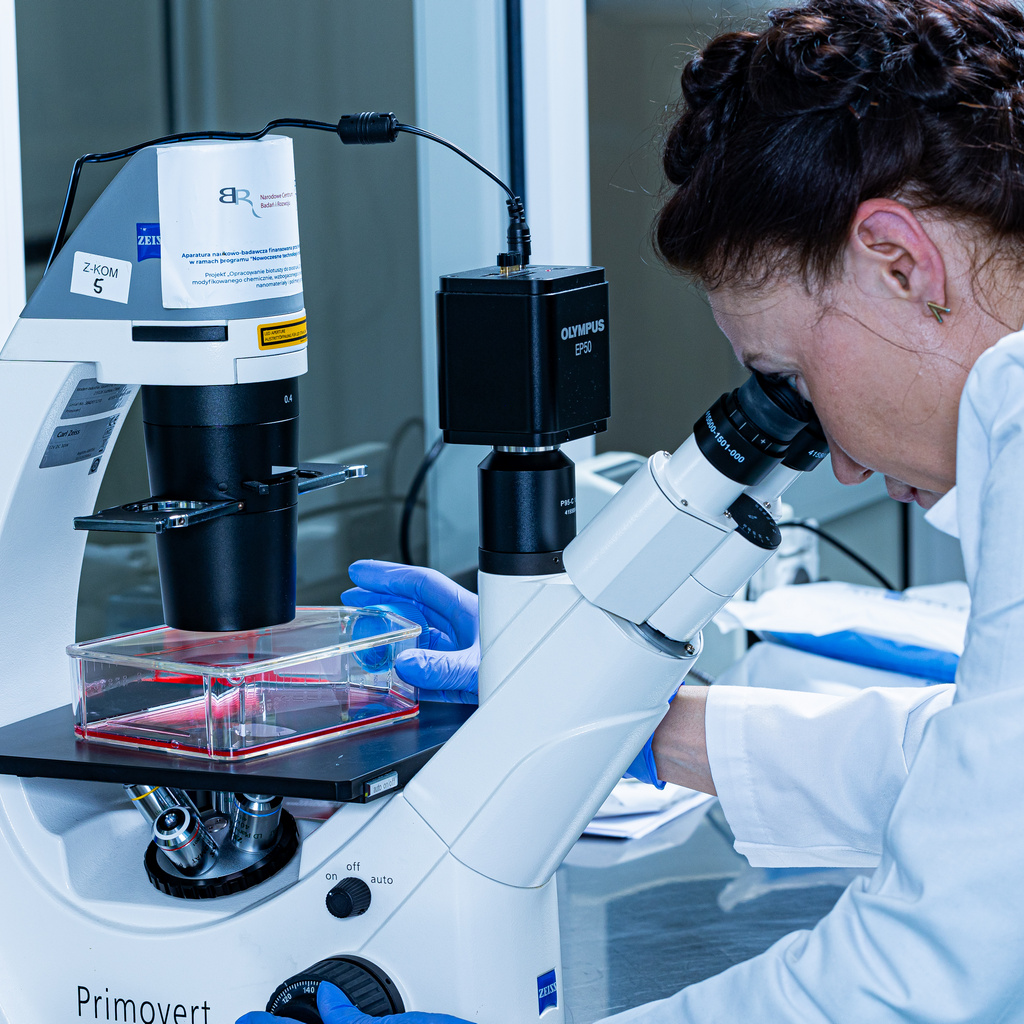3D Bioprinted Liver Tissue
Project: “3D Bioprinted Liver Tissue with Vascular System as an Innovative Model for Drug Toxicity Assessment and Anti-Cancer Therapy Efficacy,” co-financed by the European Union from the European Regional Development Fund, Operational Programme Intelligent Development 2014-2020. The project is being implemented as part of the National Centre for Research and Development competition 3/1.1.1/2020 Fast Track 3_2020.
Implementation period: 01.07.2021 – 31.12.2023
Total project cost: 24 709 750,00 PLN
EU Funding: 23 143 024,00 PLN

3D Bioprinted Liver Tissue with Vascular System as an Innovative Model for Drug Toxicity and Anticancer Therapy Efficacy Assessment
The aim of the project is to develop innovative bioinks dedicated to the bioprinting of a 3D model of bionic liver tissue, both healthy and cancerous, with a vascular system intended for:
- Toxicological tests
- Research on the efficacy of new drug candidates
The idea of creating a 3D model for pharmacological research addresses the significant limitations of currently used preclinical research models, both at the in vitro and in vivo stages. The models developed within the project will enable faster and more precise testing of new active substances. They will particularly expedite the assessment of their toxicity and the selection of active substance concentrations.
The proposed solution is a global innovation that will, in the future, significantly reduce or even entirely eliminate the need for preclinical animal testing.

Why 3D Models with Vascular Systems?
Tissue engineering technology is currently one of the fastest-growing interdisciplinary fields of science. Its intensive development is noticeable in regenerative medicine, transplantology, and in preclinical studies of new drug candidates.
One of its main goals is to transition studies conducted on 2D or 3D cell cultures to studies using tissue models that reflect the structure and functionality of native organs, including the vascular system.
At present, the most common model in preclinical studies is the animal model. Despite its widespread use, it has a high failure rate in clinical trials of new drugs. As has been repeatedly shown, animal models are not entirely reliable predictors of the toxicity and efficacy of new active substances for human treatment. It is estimated that 95% of drugs that fail clinical trials had previously passed animal model testing. The primary reason for the withdrawal of tested substances is a lack of efficacy or toxicological properties for human cells and tissues. Therefore, alternative methods for assessing the safety of new drugs are increasingly being considered. The first clear step towards introducing changes was the signing of a bill by the President of the USA at the end of 2022, stating that new drugs do not have to be tested on animals to obtain approval from the U.S. Food and Drug Administration (FDA), provided they were tested using innovative solutions such as tissue bioprinting, organ-on-a-chip, or artificial intelligence modeling.



